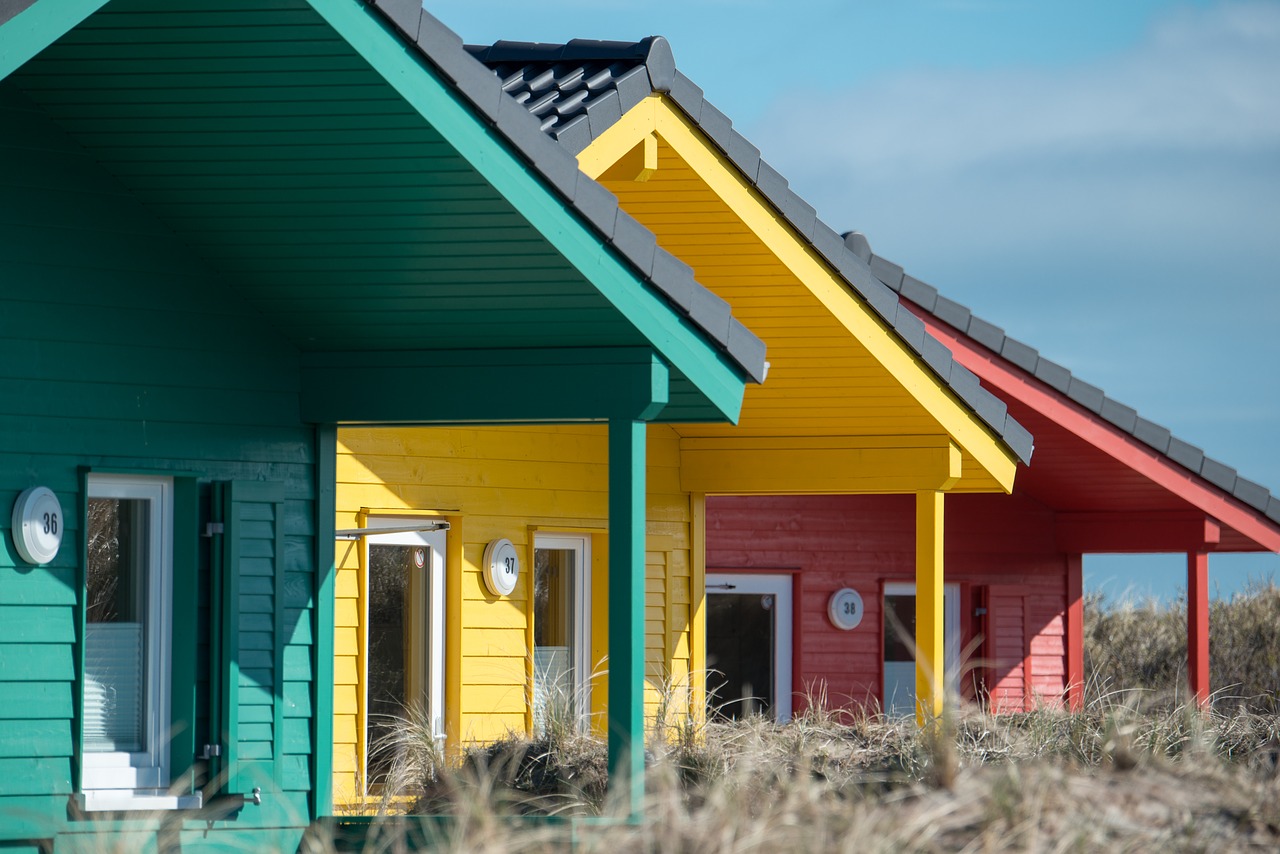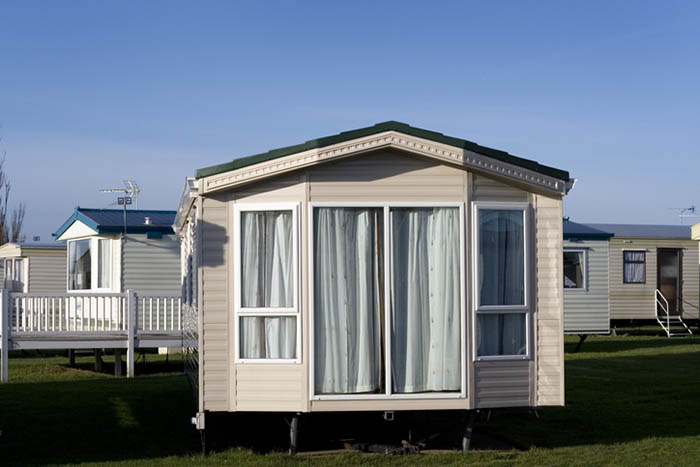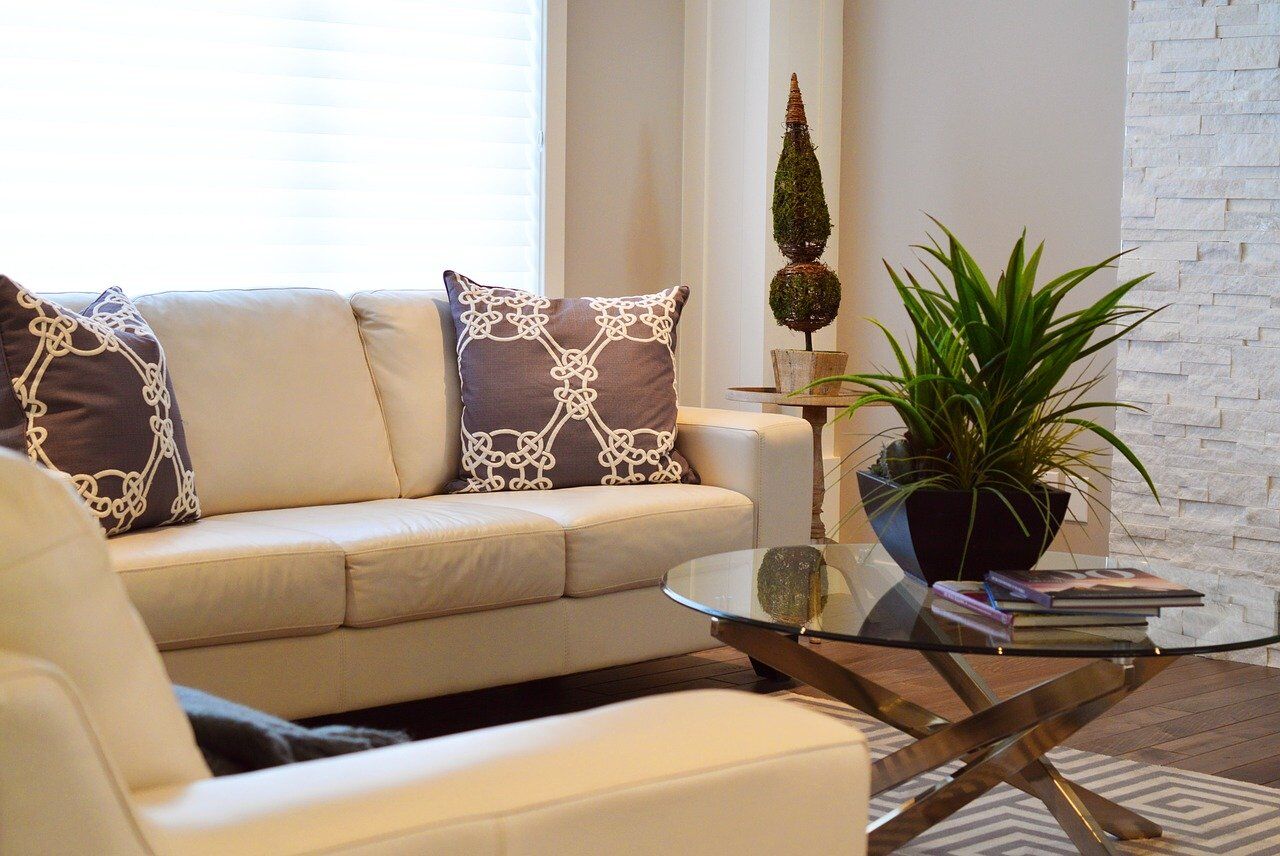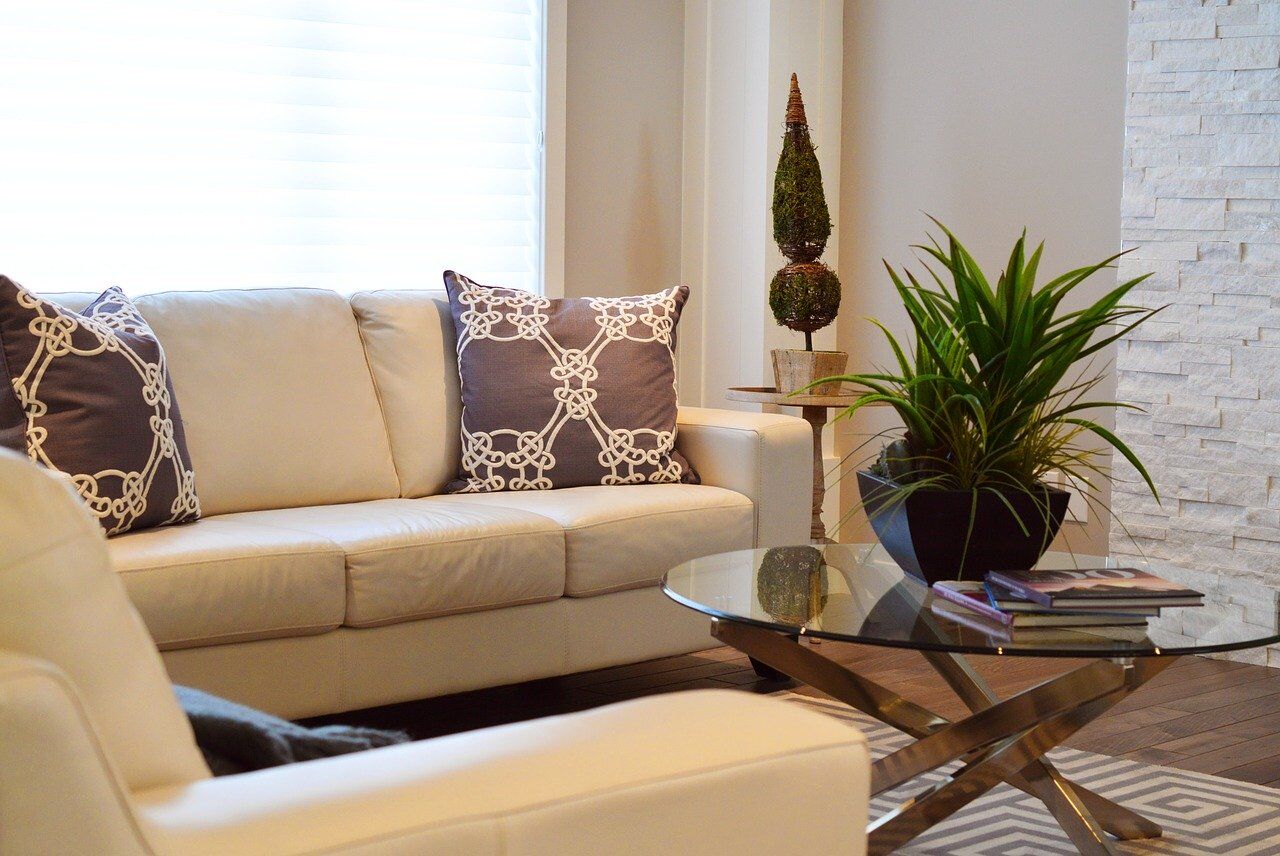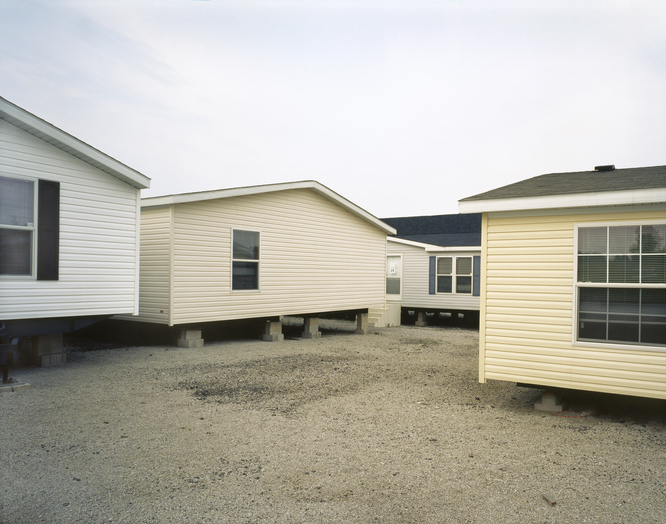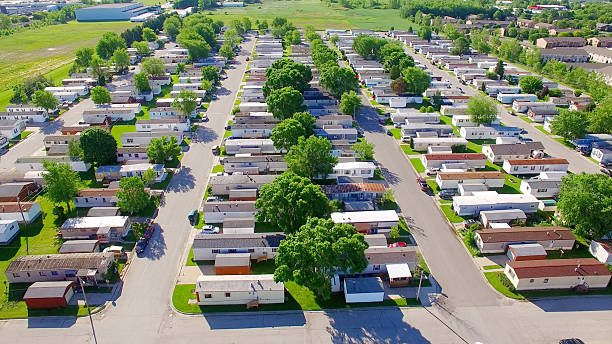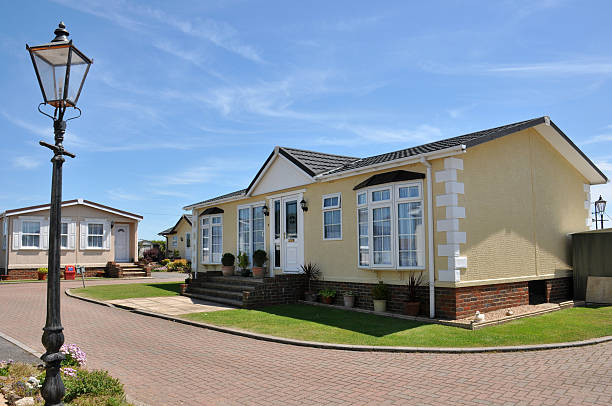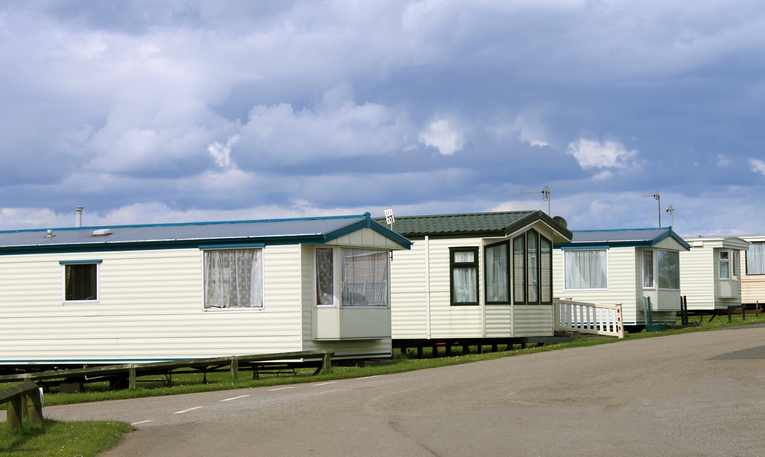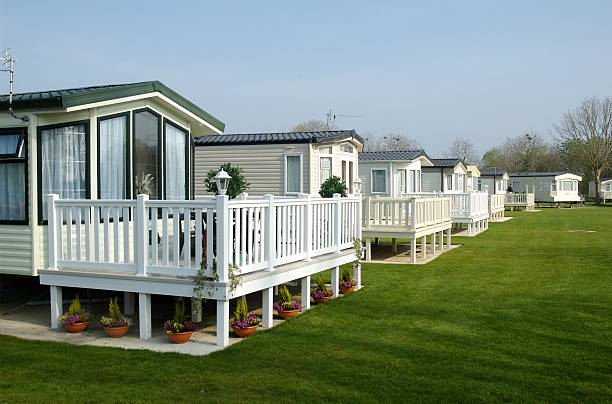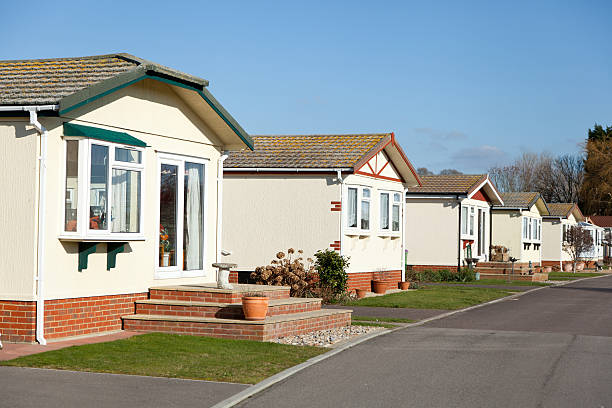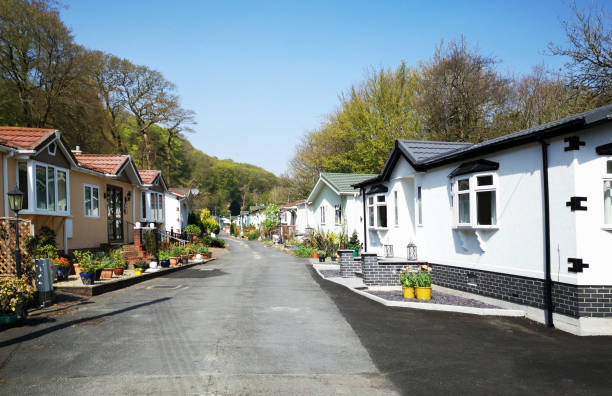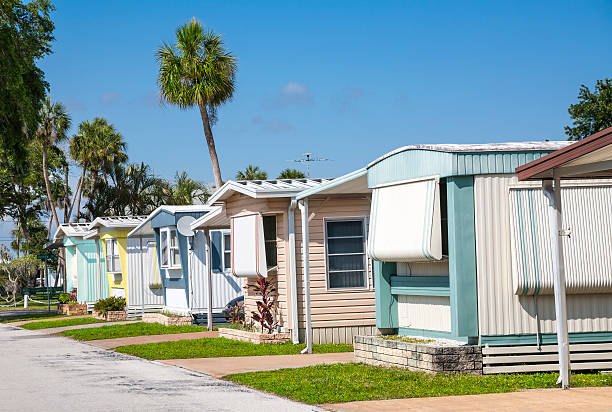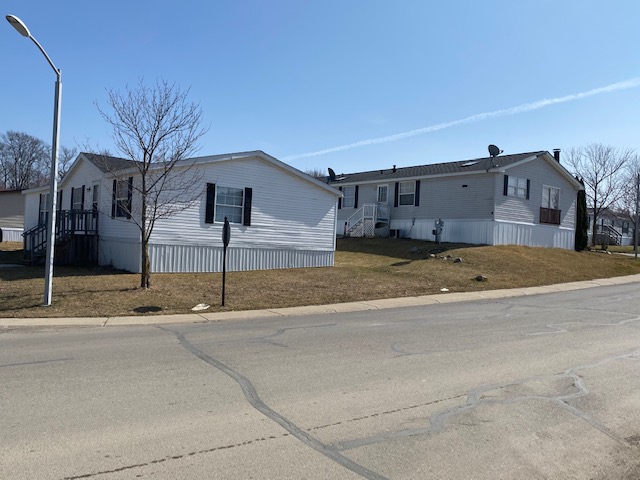5 years ago
·
Justin Becker ·
Comments Off on How to Finance a Mobile Home
For homeowners looking for a smart choice, when it comes to a newly built modern home, manufactured homes will offer flexibility with an affordable loan payment.
While the term “mobile home” is still used by many, these single-wides and doubles-wides of today are better in every aspect, as opposed to the homes built before 1976. They are now referred to as manufactured homes.
Whether you are buying manufactured homes or modular homes, deciding how you want to finance it should be your top priority.
Making a comparison of different types of loans can help you make the best decision.
How to Finance a Mobile Home
Is it hard to get a loan for a mobile home? Financing a mobile home can be as easy as a site-built home, but it is different and has its own requirements.
What’s available to you will depend on your eligibility as a borrower. For instance, the age of the structure will play a role, along with whether it is categorized as real or personal property.
Who Can Get Manufactured Home Loans?
Not all manufactured homes are considered real estate property. If your mobile home is at least 400 square feet, on an approved permanent foundation, and taxed as real property, you can apply for conventional or government-backed mortgages.
Mobile homes depreciate over time, unlike traditional homes, which typically appreciate. This is why the manufactured home mortgage program is always strict.
Ways to Obtain Mobile Home Financing
Unless your home is categorized as real estate, you won’t be able to finance the home purchase with a conventional or government-backed loan program.
Even though that’s the case, you can still finance your manufactured home, just not with traditional home mortgages.
According to the Manufactured Housing Institute (MHI), the average price for manufactured homes is often closer to $50,000 or $100,000, depending on the type.
As per the figures above, it’s fair to say financing that upfront can be overwhelming. Let’s dive into some financing options you have as a manufactured homeowner.
Chattel Loans
According to Investopedia, a chattel loan is a mortgage arrangement in which an item of the movable personal property acts as security for a loan.
In other words, these types of loans can be used to finance a mobile home, where a property guarantees the loan.
It is a popular form of loan for many homeowners, mainly because you don’t need to own the land on which the home sits.
The only catch is that chattel loans have higher interest rates. They are typically anywhere from 0.5 to 5 percentage points higher, on average, than standard loan rates.
Also, they have shorter terms than traditional mortgages, which can translate to higher monthly payments, but it does help you pay your debt off sooner.
The best thing about chattel loans is that the closing process is pretty fast, and with less restrictions, compared to traditional mortgages.
Personal Loans
A personal loan is a common type of loan. It is flexible and can be used for almost any purpose.
The downside of this type of loan is it usually has higher interest rates than other loans, such as mortgages or auto loans.
The upside is that you don’t need to provide any collateral, thus there is no chance of losing your home, in case of default. The closing process is also faster, with less paperwork involved.
Often, personal loan lenders offer maximum mortgages of $25,000 to $50,000, though some lenders will let you borrow $100,000 or more.
If you find a lender offering more than $50,000, it might be a good way to go for what you need.
VA Loans
If you belong to the military community, you may qualify for a loan insured by the Department of Veterans Affairs.
VA loans can get you a loan for purchasing both the home and the land on which the home will sit.
The only catch is that you will need to prove the property is attached to the land you own and tht it meets certain local and VA requirements.
Here is an outlook of the loan terms:
| Type of Manufactured Home |
With a Lot |
Period |
| Single-Wide |
NO |
20 Years Plus 32 Days |
| Double-Wide |
NO |
23 Years Plus 32 Days |
| Single-Wide |
YES |
20 Years Plus 32 Days |
| Double-Wide |
YES |
25 Years Plus 32 Days |
- The Lot for a manufactured home you already own: 15 years plus 32 days
What You Need To Know When Looking For Financing
● Check Your Credit Report
● Decide Whether You’re Buying Land in Addition to the Mobile Home
● Figure Out the Specifics of the Home that You Want to Purchase
● Start Looking for Financing Options
● Submit Your Loan Application
Check Your Credit Report
Your credit score report will determine your eligibility for mobile or manufactured home financing.
A high credit score makes it easier to secure mobile home loans, receive better rates and better terms from lenders.
If you spot some errors within your report, you can file a dispute with relevant authorities, such as Experian, TransUnion, or Equifax.
A lower rate will save you the agony of paying back a lot of money. So always check out your reports to be on the safer side.
Decide Whether You’re Buying Land in Addition to the Mobile Home
As discussed earlier, mobile homes are not considered a real estate asset. However, if you attach the home to land that you own, and you have the wheels and axle removed, it’s less likely you will move.
This stability of the home will increase your chances of getting mortgages from other financial institutions.
So decide on whether to buy the land or not before searching for a lender.
Most people will purchase the home and put it in a mobile home park. It’s a viable option, especially if you don’t have a budget.
Figure Out the Specifics of the Home that You Want to Purchase
It is crucial to figure out the type of mobile home you want to buy, because it will affect the eligibility of mortgages to receive.
For example, if you plan to buy a double-wide manufactured home that costs $100,000 or more, you won’t be eligible for an FHA loan.
Lenders have specific requirements as their terms of service, and it’s essential to know them.
Start Looking for Financing Options
Once you are done with the above, it’s time to start looking for prospective lenders. Compare the offers by different lenders and settle for one with favorable terms.
Doing research will make the choice of the right lender much easier.
Submit Your Loan Application
After filling in all of the details and double-checking everything, it’s now time to apply. If all of the details are correct, sit back and wait to get your mobile home loan.
Final Thought
Mobile homes can be a more affordable option than traditional site-built homes, but financing isn’t as easy as you might think if you can’t afford cash upfront. Be sure to research all financing options available and check their requirements.
The minimum credit scores for the options we have discussed above range from 580-650. Scores higher than 650 may get even slightly better terms.
Please note, scores lower than 580 may not qualify for a loan at all.
If you have a score less than 580, then you might want to consider working on repairing your credit history immediately in order for a better term in the future.
Read more
5 years ago
·
Justin Becker ·
Comments Off on What is the Life Expectancy of a Mobile Home?
Even before you decide to buy a manufactured home, you have to think about what its life expectancy is. What plans do you have for the home?
- Will you be residing inside full time?
- Do you intend to make it a vacation home?
- Is it an investment that you intend to rent out?
- Are you purchasing a newer or older home?
If you answer the above questions, you’re likely to buy the best types of manufactured homes with the life expectancy that suits you.
As per the U.S. Department of Housing and Urban Development (HUD), the average life of a manufactured home is 30-55 years. The exact period, however, depends on how well the home is maintained.
This is just the average lifespan and doesn’t mean that there are no homes with a life expectancy of more than 55 years or less than 30 years.
In this article, we’ll explore in detail the life expectancy of mobile homes.
What is the Life Expectancy of a Mobile Home?
Although the U.S. Department of Housing and Urban Development (HUD) estimate offers a reliable starting point to life expectancy, several other factors determine the lifespan of manufactured homes.
Let’s look at essential details involving manufactured homes:
Why Do Manufactured Homes Last for Such a Short Period?
Many manufactured homeowners would disagree with this question. This is because several manufactured homes have a longer lifespan than the HUD estimate.
When the HUD code and building standards came into existence, they established uniform building codes that encompassed every manufactured home. This has improved over the years, including wind resistance improvements, plumbing, fire resistance, among others.
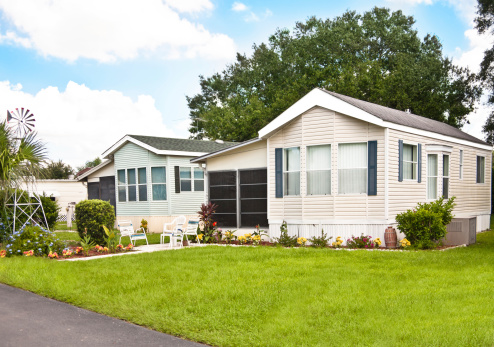
Weather conditions highly impact the longevity of these homes. For instance, in areas with high humidity, you’ll find the materials used in the construction, such as pressed boards, fibreboards and particle boards, being destroyed by the humidity over time.
After correcting structural problems, repairing the floors and replacing several roofs, many homeowners decide to replace the old manufactured home with a new one. The reason for this may be that opting for a new home isn’t expensive, considering that manufactured homes are cheaper than site-built homes.
There are places with a drier climate where the mobile homes are still in good condition, despite having more than 40-50 years.
Drier climates have lower effects on a manufactured home than a wetter one. This is true for a car and a site-built home as well.
The quality of materials used to develop the house also affects the lifespan of a manufactured home.
The Quality of Materials
Manufactured homes are built using either metal or wood. With that said, site-built homes are also constructed with wood and metal.
So, why would a manufactured home not last longer like a site-built home?
First, manufactured homes are lighter than stick-built homes. This can be attributed to the fact that a manufactured home isn’t constructed with mortar, cement or bricks.
If you want your manufactured home to last longer, you must only buy or construct one with more robust and long-lasting materials.
For instance, the roof of a mobile home should be well maintained. The materials should be of high quality and not allow absorption of moisture from the ground.
The Construction Process
The development of manufactured homes isn’t designed to be temporary.
The HUD codes and standards were put in place to ensure uniform manufactured home construction quality throughout the country.
One benefit of a manufactured home construction is that it’s developed on a heavy steel chassis that will likely last forever.
This is unlike site-built homes, which are constructed using concrete floors, which can crack easily.
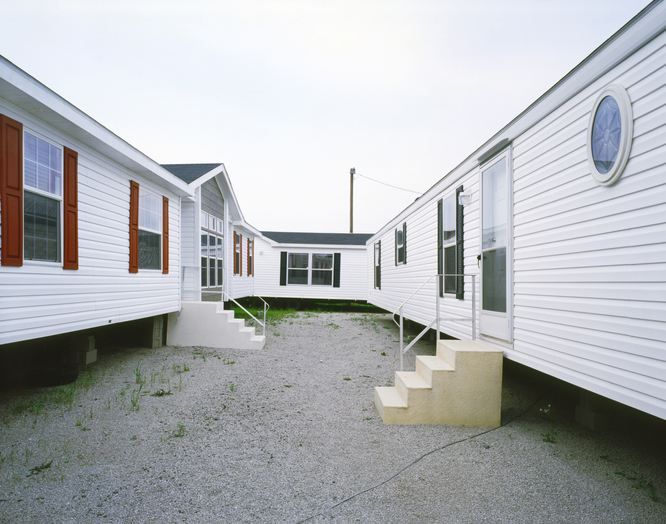
The chassis for mobile homes is supported by a foundation, which attaches it to the ground. The foundation can either be permanent or temporary.
Manufactured homes are designed and created in factories, therefore they can withstand the movement involved during transportation.
The federal standard ensures that all mobile homes are built to uniform durability and strength standards.
What Affects the Longevity and Lifespan of a Manufactured Home?
Several factors influence how long your manufactured home will last:
Initial Installation
Most of the challenges that show up later in a manufactured home originate from the improper initial installation. As we have seen above, the materials and construction process was designed to last for a very long time, and a new mobile home must first be transported to a site for installation.
Since the installation process is very technical, it should never be done by inexperienced labor. Whether you’re buying a used manufactured home or a new one, you should have a qualified house inspector in place to ensure that every step of the installation procedure is followed properly. This can ensure that your mobile home last indefinitely.
Foundation
There is always a foundation in place to support the chassis of a mobile home. The quality of the foundation plays a significant role in ensuring the longevity and lifespan of a manufactured housing unit.
This means that the home should be built on a site having the best building conditions. The site may determine the type of material you’ll use for construction.
For instance, if you own a personal lot, you’ll use a different foundation when you’re sharing a mobile home park space.
Damage
It’s the nature of humans not to take care of their property and items for the long term, and a lot of people are only interested in caring for something when it’s new.
Here, finances play a major role in the damage of a manufactured housing unit. There are times when an HVAC unit breaks downs, a plumbing leak reveals itself, or a roof becomes compromised, but you don’t have the finances required to maintain these situations. If these types of problems are ignored for too long, the whole house might have to be replaced.
However, this is something that house flippers like. They like investing in homes that are in a worse state, because they can get them for cheap, then they fix them up and sell them at a profit. With most old manufactured homes, it requires a little financing to bring back their new look.
Water Damage
A water damage problem is one challenge that needs immediate attention. A leaking plumbing fixture, roof or toilet can destroy all materials that they come in contact with. If you don’t correct the issue immediately, it can quickly escalate to a severe problem that may not be worth repairing.
If your mobile home is located in an area that gets a lot of rain, then try to have a good paint coating on the outside. Having the exterior of your home sealed and painted, you’ll be able to prevent damage from water.
Increasing the Serviceable Life of a Manufactured Home
As we’ve said above, the maintenance of your mobile home plays a major role in its lifespan, on top of the construction materials or methods. Although the lifespan of mobile homes is approximately 30-55 years, statistically, let’s explore ways in which that lifespan can be improved:
Location
Here, we are focusing on selecting the best mobile home community or lot for your manufactured housing unit.
If a property is placed in the right area, it’s evident that its value will improve. If you want to enhance the lifespan of your home, choose a good lot that supports a great foundation.
Inspections
Regular inspections are the way to determine things that must be done to your home to improve its appearance and lifespan.
Always do an inspection when there are intense catastrophes due to mother nature, such as strong winds and floods. Doing this will enable you to notice cracking walls and leaking roofs that might be problematic down the road.
Roof Maintenance
The roof stands between the elements of nature and what is inside your mobile home. If you want your manufactured home to have a shorter lifespan, don’t bother doing roof maintenance.
Bottom line is, regular roof maintenance should be a top priority if you want your mobile home last longer.
Skirting
Keeping the skirting in top-notch condition is one of the best maintenance practices that you can ever do. Skirting is a sure way of maintaining elements and animals out of your manufactured homes.
Skirting also safeguards the insulation, foundation, and belly wrap, which are all crucial to a mobile home’s longevity.
General Maintenance
General maintenance also helps maintain the whole mobile home and keeps it in good shape. Minor problems can quickly escalate into major problems, if left unattended.
Some of the things you should do include:
- Contacting a professional to take care of wiring issues
- Repair any soft spots on the floor anytime they occur
- Repair plumbing leaks immediately once you notice them
- Keep windows in their proper conditions
- Re-level the home when necessary
- Blocking seams where water might enter
Remodelling Your Home
Remodelling your manufactured home is an excellent option if you want to improve its lifespan. Here, you should set aside a specific budget to manage the insulation, windows, floor, siding, and roofing. This makes manufactured homes efficient and tighter.
However, remodelling should mainly depend on the mobile homes in question. When the repairs are too costly to undertake or the damage from rot, insects, water, or mold is too much, you can abstain from remodelling or maintenance altogether and simply buy a new manufactured home.
The Final Verdict
Although the life expectancy of mobile homes is estimated at 30 to 55 years, by HUD, the real-life expectancy can be higher or lower depending on the materials, methods used and maintenance practices.
Your mobile home will last for more time if you do regular maintenance. We hope that you invest in manufactured homes that were developed with high quality and last for a long lifespan.
Read more
5 years ago
·
Justin Becker ·
Comments Off on What is a Mobile Home Community?
When choosing your next home, the location is as important as the home search. With the rise of mobile homes, there are more options available for you than ever before.
The market has seen the demand for mobile homes rise over the past few years.
Its affordability makes it possible for many Americans to get homes, and at reasonable prices.
In fact, according to the Manufactured Housing Institute, between the years 2013 and 2017, the number of manufactured homes skyrocketed from 60,210 to 92,891, which calculates to a whopping 54 percent increase.
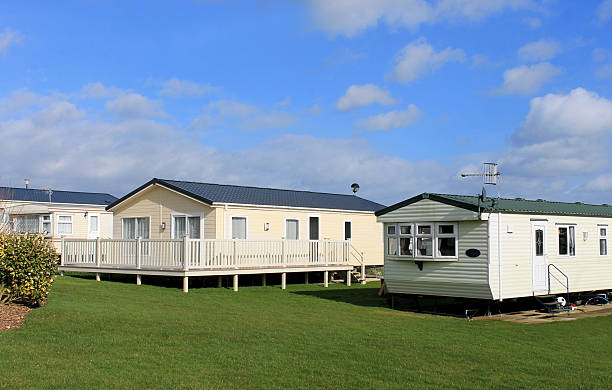
Manufactured homes are quite affordable compared to traditional site-built homes. You could break the bank trying to achieve your American dream of buying a traditional site home.
Manufactured homes are so popular that they can be found in urban, suburban, and even rural areas throughout the country.
When it comes to manufactured homes, one can either place them on privately owned land, or on leased-land in mobile home communities.
According to the 2017 American Housing Survey, between 1995 and 2017, 31 percent of all new manufactured homes were installed in manufactured home communities.
What is a Mobile Home Community?
Mobile home communities are also referred to as mobile home parks, manufactured home parks, land-lease communities, and even trailer parks.
A mobile home community is a residential development designed to house manufactured homes.
Residents are provided with land to place their houses, and in return they pay a monthly rent for the lot. The community provides amenities for all residents to use, and charges for those are typically included in the rent.
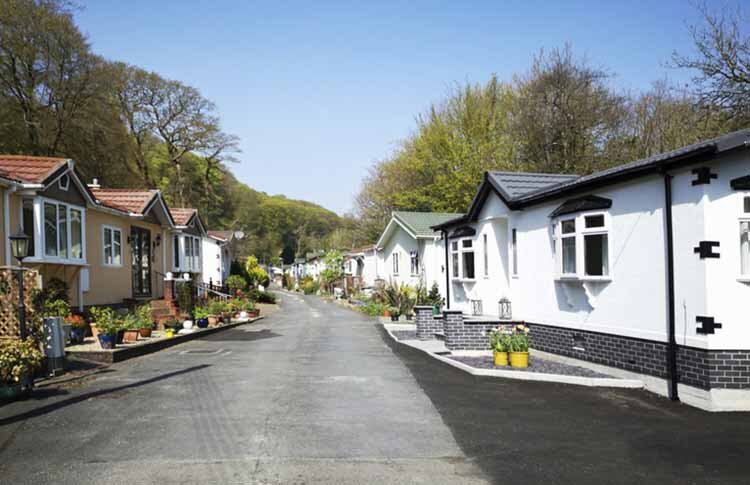
For years, people have flocked to manufactured homes as their primary choice of housing arrangement, ditching the traditional site-built homes.
According to the Manufactured Housing Institute, the mobile housing industry produced almost 95,000 new homes in 2019, which accounted for approximately 10 percent of new, single-family home starts.
When it comes to mobile home communities, people can either buy a manufactured home, or rent it. Either way, residents will enjoy similar benefits, with the difference being ownership.
Types of Mobile Home Communities
Just like choosing an apartment in a neighborhood that matches your taste, the same applies when searching for a mobile home park.
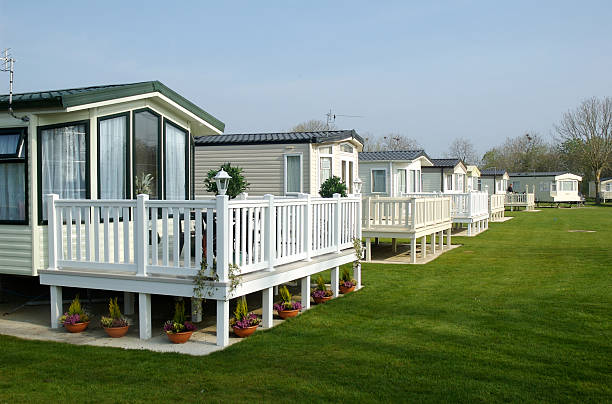
You look at different variables, and filter them, until you settle on one that checks all of your core boxes. Here are different types of manufactured home communities that you can choose from.
All-Ages Mobile Home Communities
Just as the name suggests, this type of community allows anyone, who wants to live affordably, into the neighborhood.
Additionally, they have a kid-friendly environment that is good for a family.
You will never have to worry about your children being idle, as such the community typically has amenities such as basketball courts, playgrounds, and organized activities to keep them engaged.
Age-Restricted Mobile Home Communities
This type of manufactured home community usually caters to older adults of age 55 years and above. They are also referred to as retirement communities.
Most older adults, who have hung up their boots, downsize from traditional homes, or rentals, and move to such communities.
Most of these communities have central gathering spaces for social events, with groups organizing everything from card clubs, to shuffleboard tournaments, to even day trips.
Resident-Owned Mobile Home Communities
This type of mobile home park offers residents a chance to share ownership of the park.
Everyone contributes to buying land and paying for other services, like maintenance. Additionally, the residents tend to have the power to decide how the park is run.
Also, it is rare to hear of such residents being kicked out of the community, since they claim ownership and contribute to how the park is managed.
Mobile Home Communities are a Great Choice to Live-In and Raise a Family
Approximately 22 million people live in manufactured homes in the United States, according to the manufactured housing industry statistics.
Interestingly, 56.4 percent of mobile homeowners have lived in their current homes for more than 10 years.
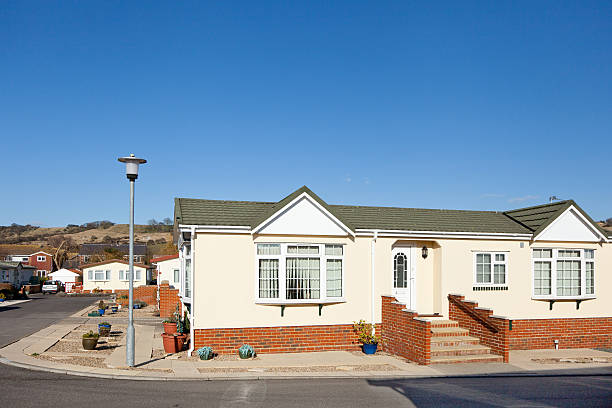
Mobile home communities come along with many benefits. Let’s dive into the reason why we think it is great to live and raise your family in a mobile home park.
No High Property Taxes
Living in a mobile home community evades you from paying high property taxes. A mobile home is not classified as real estate, rather it is considered personal property and, thus, is taxed as such.
Living in a manufactured home community allows you to own a home, but at a far more affordable cost than traditional homes.
Unlike renting a house or apartment, the mobile home park will offer you considerably enough space for your family, and equally, accord you the privacy you need.
An apartment’s outside space is likely to be the balcony, if it even has one, which you may even need to share with the person next door.
If your apartment neighbor is noisy, then you’re likely to have a difficult time staying. On the other hand, a manufactured home community has rules and regulations that often residents subscribe to before being allowed to join the community.
Sense of Community Living
Apartment rentals don’t offer many social interactions like mobile home communities do. In fact, you could go days, or even weeks, without meeting with the resident next door.
Renting apartments is more isolated and lonely, however living in community parks offers you the social interaction aspect.
The best thing about mobile home communities is that they tend to foster socialization via activities.
They can be in the form of organized events, clubs, game nights, dinners, and even trips to help keep members busy, all while lifelong friendships are forged.
Some mobile home parks can be age-restricted, as discussed earlier, which breeds a community of like-minded people.
Less Costly
Land is a prerequisite for building a traditional home. For you to have a site-built home, you need to buy land, which is costly and adds to your budget.
By the time you hire site contractors and buy building materials, you are likely to be overwhelmed by the cost.
There’s a lot that goes into a construction site, thereby suggesting that big checks need to be available for project progress.
On the contrary, manufactured home communities offer you an escape route by cutting down the burden of buying land. The only cost is buying or renting a manufactured home, and paying a monthly rent for the lot.
Raising a family has a lot to do with spending more monthly. If you are on a budget, a manufactured home community will perfectly fit the goal, while living a standard life.
There’s a misconception that manufactured homes are of poor quality, leading to many people questioning the livability of the home.
On the contrary, manufactured homes have been subjected to new construction standards since 1976, after the HUD code came into effect.
This means all mobile homes built after 1976, which are referred to as manufactured homes, are built way better. The amenities were improved, while giving the homes a luxury touch and a modern design to resemble the traditional site homes.
Appealing Amenities
Today’s manufactured home communities boast many amazing amenities for their residents. Social interaction is the order of the day in most manufactured home communities.
They offer places for residents to come together and share meals, socialize, play games, and do community service activities. For example, some offer tennis courts, pristine pools, and much more.
Some community parks even go overboard by providing extras for their residents, you’ll be amazed!
Maintenance is Taken Care Of
A traditional home can be a paradise, until maintenance comes calling. Taking care of a traditional home is far more costly than renting or owning a mobile home in a park.
Unlike traditional homes, the manufactured home community will include such services in your monthly rent, like water, sewer, and trash, but may also include cable, internet, and other essential utilities.
Possibly the best thing about living in a mobile home community is that you will have little to worry about.
Little Worry About Permits and Inspection
Unlike placing your home on private land, where you need to work on permits, communities have professionals who will help you with anything and everything you need to secure permits.
If you have less to worry about, your mind will be occupied with other important matters like spending time with your family.
Conclusion
Manufactured home communities across the country are known for affordable housing, an eco-friendly environment, and many more.
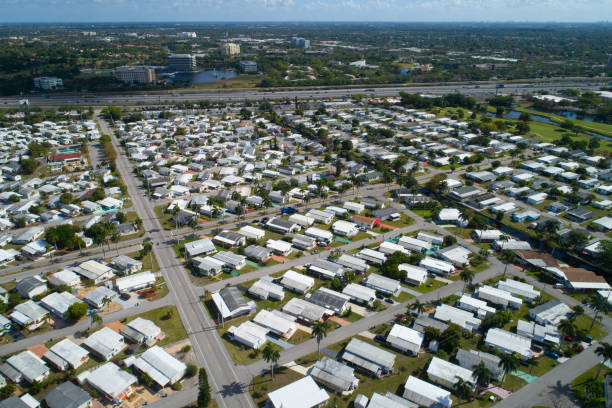
If you have a bigger family, then choosing double wides, as a housing option, will be necessary.
When searching for a community to join, it is always recommended to do research and establish if it matches your taste.
Is the park pet-friendly? Such information will be crucial to your decision-making process.
Also, it is important to understand that manufactured homes are not classified as real estate properties, therefore you’re unlikely to get a mortgage from traditional financial institutions.
However, there are several financing options one can use to purchase these homes. For example, personal loans, FHA loans, VA loans are some you can count on.
Your investment in manufactured home communities will be worth it, and you will spend far less compared to traditional homes.
Read more
6 years ago
·
Justin Becker ·
Comments Off on Mobile Home Tips: Finding the Right One for You
Mobile homes have been on the rise in the real estate market every year over the last decade. This is all while capturing the imaginations of millennials struggling with student loans, along with mobile home owners looking to downsize.
Some of the reasons for this are because mobile homes are reputable for being low maintenance, affordable, and customizable.
If you want to escape the extra costs of site-built homes, this is the perfect option for you.
Even though mobile home living has become a common trend, you should follow certain tips before investing in one. For instance, maintenance considerations, getting a mortgage, and the choice of land options all differ from the traditional site-built homes.
Here, we explore some mobile and manufactured home tips that you should understand before investing in the best maintenance-friendly mobile home for your family.
Mobile Home Tips
Let’s go through the tips for mobile home living.
Land for Mobile Home Living
Manufactured home developers understand that mobile homeowners want to settle in a beautiful and comfortable space. A comfortable space means that the mobile homes must provide luxurious upgrades and fixtures, with features such as well-painted walls, hardwood floors, skirting ventilation, proper roof, and granite counters.
Before you buy a manufactured home, you should already have the land and foundation to put your mobile and manufactured home property. However, if you rent a manufactured home, you won’t have to pay for the land.
You can either have your mobile home on your own private land or in a manufactured home community, where you pay a monthly lot rent.
Settling in a manufactured home park offers your family a vibrant community that has exciting amenities. This way your mobile home living experience will be outstanding.
Renting land will enable you to incur the low initial down payment required to secure financing. However, it will be difficult to access a traditional mortgage.
If you decide to buy land on which a mobile home will be placed, you will incur more costs upfront. You will also have to carry out more research into zoning laws and local deed restrictions.
With that said, owning land enables you to access traditional mortgages at a lower interest rate. You will be protected from the depreciation of mobile homes if you own the land where your manufactured home property is placed.
When the value of that land appreciates, you can gain meaningful equity.
Considerations While Buying a New Manufactured Home
Buying a new home can be a walk in the park, if you follow the right tips.
The advantage of buying or renting a new manufactured home is that you won’t have regular maintenance and repairs, and you’ll have many customization options. This offers you a chance to have an exciting mobile home living experience.
Some of the options include:
- Select the exact layout and size that you’re looking for: When you buy a new home, you can select the size of your manufactured home property. The mobile home’s size ranges between 900 square foot to 2,500 square foot. You’ll also be presented with a unique opportunity to select the perfect floor plan for your family. In most cases, the price is determined per square foot.
- Select all the features you require: When you buy a manufactured home you’ll access some of the best features, including windows, walk-in closets, fireplaces, custom cabinets, countertops, a well-painted wall, and a quality roof.
- Customize the exterior: Apart from customizing the interior of your house, you can also customize the exterior by choosing vinyl siding materials and colors, decks, skirting ventilation, awnings, steps, and more.
Buying Used Mobile Homes
The main advantage of going for a used mobile home is that it has a reduced price. For instance, the price of used double-wide mobile homes, per square foot, is lower than that of new double-wide units.
Even with the lower price, you should ensure that your home is in good condition, if you want to have a good mobile home living experience.
Always check the following tips:
- Ensure the insulation beneath the belly wrap contains no moisture
- Check your doors and windows for cracks, insulation, and gaps
- Test the flooring strength and ensure that there is no warping
- Ensure that you have 2×6“ lumber and 16“ spaced studs in walls
- Check that there is no settling
- Ensure that your anchoring system is intact and sturdy
Research the Available Mobile Home Living Options
Nowadays it’s easy to get all of the information you would like to know about a mobile home. Since information is readily available, always dig to learn more about the mobile home, along with the company or agency that wants to sell you the home.
Every mobile home is developed under the same HUD Code. The best mobile home has exciting countertops, well-designed floor plans, well-ventilated windows, and spacious parking.
You might also interact with exterior additions such as skirting, a quality roof, porches, and decks. These things won’t be included in your base cost.
Shop Around for a Mobile Home
The internet offers many buyers more power to negotiate for the best deals. Use this power to your advantage when acquiring a mobile home.
Before you buy a mobile home, shop around online or visit several locations. You can even compare the price of mobile homes. Remember, this is your mobile home, not anyone else’s.
Negotiate the Total Price
A mobile home company isn’t a bank. Only licensed loan officers offer a true monthly payment. If you want the best deal, you should negotiate the actual price for your mobile home, not the monthly payment.
This means the price of everything in the mobile home community, not just the mobile home price. If you own land, there are additional expenses such as septic, electric hookups, and water.
You can even have the bottom line of every cost, including maintenance, upgrades, delivery, and land improvements.
The aim here is to get the best deal for your mobile home living experience.
Always be Ready and Willing to Walk Away
Walking away from a bad mobile home deal is among the greatest tools you’ll ever yield. There is a high chance that even if you fall in love with a mobile home, there are hundreds of dealers selling that kind of home, or at least very close to it.
Dealers fear potential customers walking away from a deal. If you leave, their worst fear is that you’ll never come back.
If you are offered a deal that you don’t like, just walk away. They might offer you a better mobile home deal, or you’ll get a better deal somewhere else.
Approach a Bank
In most cases, banks assist people in purchasing a mobile home. You won’t be charged anything for approaching a bank and applying for a loan.
Approaching a bank will enable you to access loan facilities that you can use to finance your home.
Even though a mobile home is affordable compared to a site-built home, it’s still difficult to finance this home from your savings. You might also need more money in case of maintenance issues.
Ask Questions
There is nothing like asking a “stupid” question when you want to buy a mobile home. If people had all the right answers, there would be no dealers in the real estate industry.
Never feel ashamed to ask as many questions as possible or get clarification from someone helping you purchase your mobile home of choice.
If you get answers that you don’t understand, don’t be afraid to ask for further clarification.
A reputable and reliable mobile home dealer will be more than willing to answer all of your questions in a way that you understand.
Make a Call
You can find the service level you’ll get from your potential mobile home by finding out how helpful your dealer is over a call.
Since the beginning of the COVID pandemic, making a phone call is preferred by many to visiting the office in person.
Some of the best dealers won’t hesitate to share their mobile home prices over the phone.
With that said, many dealers don’t like providing pricing information over the phone because they know you’ll carry out a comparison with other dealers.
However, you should also do some personal research online concerning a dealer and the services they offer. Selecting the best dealer typically translates to a good mobile home living experience.
Conclusion
Buying quality manufactured homes with exciting curb appeal, a quality roof, durable skirting, and well-designed walls isn’t easy if you don’t have the right tips.
However, the above tips will offer you a chance to buy or rent manufactured homes of choice for your family.
The best manufactured homes are those that have the best features, such as energy-efficiency, skirting ventilation, and well-designed walls, all at an affordable price.
We hope that you find the home of your dreams and have a wonderful mobile home living experience.
Read more
